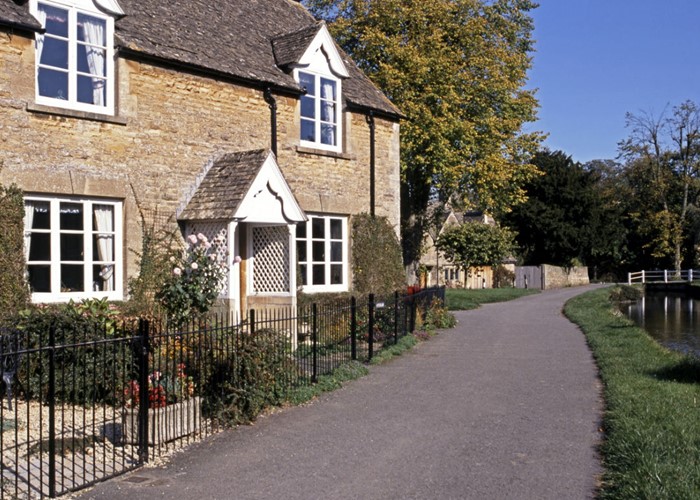The resurgence of the timeshare scam

In theory timeshares are a great idea. But in practice they are a costly holiday nightmare for many.
Younger readers may not remember timeshare schemes. They were the great idea (in theory) of dividing ownership of a holiday flat among many people to keep costs down. But in practice many failed due to ultra high expenses, inflated prices and the involvement of organised crime.
But timeshares are making a comeback – my inbox is now full of offers for “bargain” timeshares and “holidays below market value”. And like any other emails from people I have never heard of, they have to be treated very carefully indeed.
My last personal – as opposed to journalistic – involvement with timeshare was over 20 years ago, when my family went to Tenerife for a week. While there, I had a look at a supposed golf course development. It never materialised, despite the promoters taking big slices of cash for deposits, and as far as I could see, they had no more rights to be on the course than anyone simply taking a short cut and, as we were, dodging the balls.
Plied with booze, more likely to buy
But avoiding golf balls was easy compared to dodging the timeshare touts. Usually English and working illegally in Tenerife, they would follow you up the street, pursuing you into a shop or cafe, to ensure you attended their firm's 'presentation'.
They would offer a variety of inducements; bottles of brandy, cash, even toys for the children. My daughter acquired a cuddly animal she immediately named Timeshare.
The presentations were pressured. Prospective purchasers got loads of cheap alcohol – with some suggesting drinks were laced with drugs. And if you showed interest, there were more 'gifts' such as (almost certainly fake) designer watches as you moved up the sales ladder.
Timeshare sounds great in theory. You fix the cost of your holiday now and for ever more. You can evem leave the timeshare in your Will.
So why throw money away year after year on holidays? That's what my emails continue to tell me – after all, why change a tune that has pulled in hundreds of millions in profits?
In practice, it is fatally flawed. Buyers only fix the accommodation – not other costs such as travel, eating and entertainment. On top, there are fast escalating service charges which are not negotiable. And as few people actually want to go back to the same place at the same time, year after year after year, there are expensive exchange deals.
Worst of all, the asking price for a week's timeshare is not the value of the property divided by 50 – or even that figure adjusted for high and low seasons. Instead a typical deal works like this – divide the £100,000 cost of the flat by 10 and then sell all the weeks for an average £10,000 - £500,000 for the property.
The formula worked and the promoters, many linked to organised crime, profited big time.
The death of the timeshare scam?
Over time, the vast majority of owners have given up – some have died, many have disappeared (despite the best efforts of timeshare debt chasers), and a number have tried to sell on their shares. Many resale companies have sprung up – they have found few buyers so they are taking to spamming millions.
The sales pitch is the same as the original – cheap holidays – with the additional claimed benefit that you are “buying below market value”. You are told you can have a week, which originally cost £20,000 for £5,000. Or a low-season week that originally fetched £8,000 can be yours for £2,000.
Sounds like a bargain? It might be if the costs stopped here. But they don't. The exchange package will cost £100-a-year for membership and up to £200 for each week's swap. And there are hidden service charges.
Most timeshares were built in the 1970s and 1980s. They are showing their age, especially as they were often constructed on the cheap. Essential repairs – the roof, entrance hall, and furnishings - do not come for nothing. Instead, they are included in a service charge which is divided among the remaining owners. The fewer the owners, the more they have to pay as their share of the work.
It may be impossible to scrutinise the accounts of the management firm – most are very much “offshore” - or to ensure repairs are competent and competitive.
Many resellers will persuade you to buy through a high interest loan (from which they collect a commission). Adding up the costs, and even before you factor in not using the timeshare some years, will show it is far cheaper and less hassle to rent a flat when you want one.
The timeshare generation – mostly now retired – lost out. Hopefully, a younger generation will be more savvy than buying into the sales emails.
More on scams:
Unmined gold: the aggressive scammers who won't take no for an answer
The scammers who thought I was a Knight of the Realm
Tragic phishing scam victims who didn't even own a computer
12 surefire signs you're being scammed
The scammer who promised I could make money from dog faeces
The retiree waging war on the eBay tractor scammers
Comments
Be the first to comment
Do you want to comment on this article? You need to be signed in for this feature